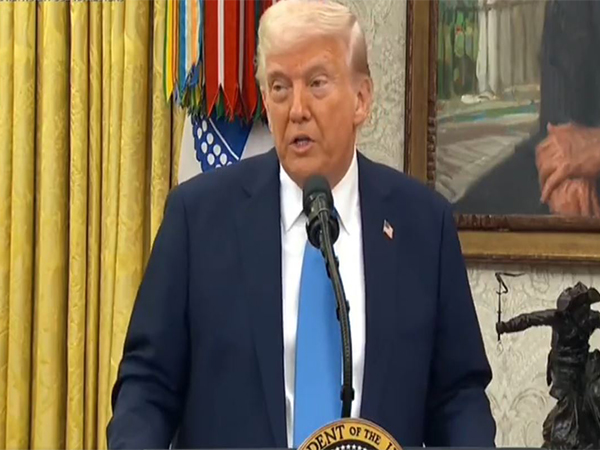Trump's Tariff Threat Strains Russia-U.S. Relations
Amid increasing tensions, President Donald Trump plans to impose secondary tariffs on Russian oil, expressing frustration over Moscow's involvement in Ukraine. Trump's remarks emerged amid stalled negotiations with Vladimir Putin and aimed to pressure Russia to broker peace. The move risks impacting U.S. trade relations globally.

In a bold move unfolding on the international stage, President Donald Trump announced his intentions to slap secondary tariffs on buyers of Russian oil. Expressing his exasperation with Russian President Vladimir Putin, Trump revealed the punitive measures could range from 25% to 50% as retaliatory action for what he perceives as Russia's obstruction in resolving the Ukraine conflict.
Since taking office, Trump's warm overtures towards Moscow have puzzled allies but his latest stern warning reflects a shift towards assertiveness, aiming to catalyze an end to the prolonged Ukrainian crisis. The tariff threat signals a growing impatience with the stalled diplomatic efforts and could have far-reaching ramifications for global trade dynamics.
Amidst the tension, the U.S. administration remains steadfast in pursuing its geopolitical goals, though faces mounting questions regarding implications on international trade partnerships and its strategic positioning. Trump's vow to implement these tariffs is positioned as a leverage point to facilitate peace talks, potentially reshaping the political equations around the globe.
(With inputs from agencies.)
ALSO READ
Vietnam Slashes Tariffs on U.S. Imports
Vietnam Reduces Tariffs on U.S. Goods to Strengthen Trade Relations
Vietnam Slashes Tariffs on U.S. Goods to Curb Trade Surplus
Trump's Insight on Russia's Intentions in Ukraine Conflict
Black Sea Ceasefire: US Brokers Historic Truce Between Ukraine and Russia










